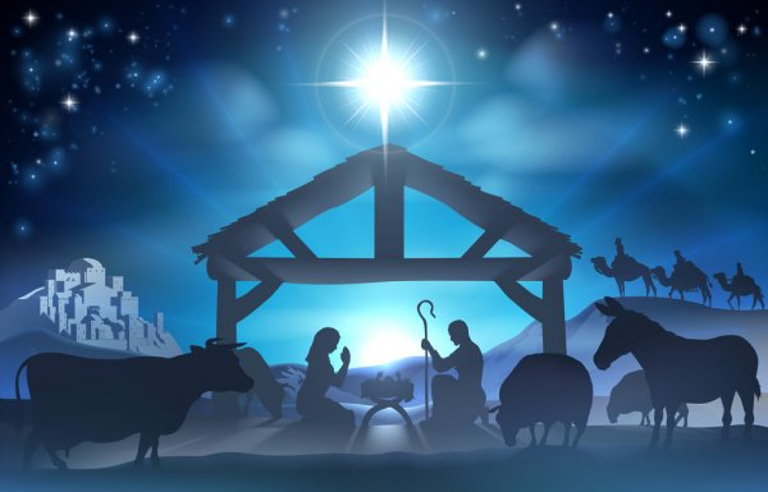Unsung Heroes: How Mary and Joseph Faced Their Challenges
Explore Mary and Joseph's vital role in the Nativity. Their faith and courage shaped Jesus' birth. Discover their story today.
Grace Callahan
3/14/202515 min read
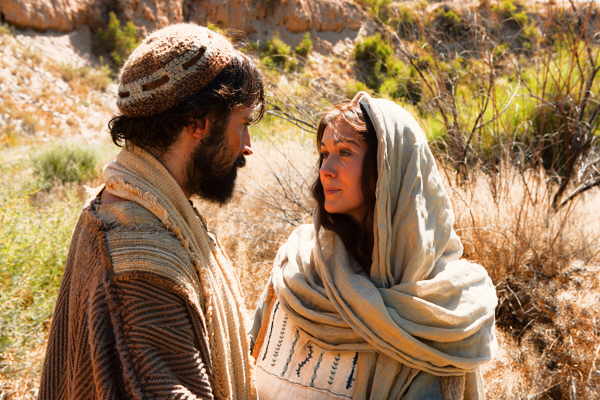

Introduction:
The Nativity story captivates many with its miraculous events, yet Mary and Joseph often remain overlooked. These two figures are essential to the Christmas narrative, showcasing unwavering faith and courage. While the spotlight shines on Jesus and the heavenly messengers, it is Mary’s steadfast belief and Joseph’s protective nature that truly fulfill the prophecy of the Messiah. This post will explore their vital roles in the Nativity story and highlight why they deserve recognition as the unsung heroes of Christmas.
The Faith and Obedience of Mary
Mary's journey in the Nativity story is nothing short of extraordinary. But let’s be real: what she did was so much more than simply saying “yes” to God’s call. Her response was a profound act of faith and obedience that transformed the course of history—and I think it’s one we can all learn a lot from.
Mary’s Response to the Angel's Message: How Mary's “Yes” Changed Everything
Imagine being a young girl, living in a small, conservative town, when an angel appears and tells you that you’re going to conceive the Savior of the world. What would you say? How would you respond to something so unimaginable? Mary’s immediate, humble response, “I am the Lord’s servant. May your word to me be fulfilled” (Luke 1:38), is not just an acceptance—it’s a complete surrender to God’s plan. There was no hesitation. She didn’t question the logistics, the risks, or the potential fallout—she simply trusted.
It’s mind-blowing to think about how her obedience to that divine calling changed everything. Her "yes" wasn’t just about her—it was about the world. And you know, this kind of trust in God’s plan, especially when we can’t see the whole picture, can be so difficult for us today. But Mary? She showed us what true faith looks like in its most raw, trusting form.
Her Role as the Mother of God: The Deep Theological Significance of Being Chosen
Mary’s role as the Mother of God is one of the most significant theological concepts in Christianity. God didn’t just choose anyone to carry Jesus; He chose Mary, a woman who was humble, faithful, and courageous. The incarnation itself—the idea that the eternal, all-powerful God became a helpless baby—was made possible through Mary's willingness.
But here's where it gets challenging for me. Theologically, it's hard to fully grasp the weight of Mary's calling. She carried the Savior, nurtured Him, and witnessed His life and death. She wasn't just the birthmother of Jesus; she was the first disciple, modeling what it means to trust God completely, even when it doesn't make sense. Her role wasn’t about glory; it was about service. Isn’t it humbling to think that such greatness was entrusted to someone so humble?
The Magnificat: Exploring Mary’s Words of Praise and Trust in God’s Plan
The Magnificat, Mary’s song of praise (Luke 1:46-55), offers us an intimate glimpse into her heart and her trust in God’s plan. Her words are filled with joy, but also with an understanding of God’s justice and faithfulness. It’s a hymn that reflects both her personal gratitude and the bigger picture of salvation history.
In her praise, Mary acknowledges God’s mercy to the humble, the lifting of the lowly, and the fulfillment of His promises. This wasn’t just a song of personal thanksgiving; it was a prophetic declaration of God’s work in the world. I can’t help but feel a sense of awe when I read it. How often do we overlook God’s working in the mundane, in the quiet moments? Mary didn’t, and she praised God for His faithfulness to her—and to all of humanity.
Facing Public Scrutiny: Understanding the Societal Risks and Her Courage
I think we often overlook how brave Mary was. In a time when out-of-wedlock pregnancy could lead to public shaming, rejection, or worse, Mary didn’t hesitate to say yes to God’s calling. She had no guarantee that Joseph would stand by her, or that her family and community would understand.
In fact, many likely questioned her. After all, who would believe that a virgin was carrying the Messiah? Yet, Mary faced those risks head-on, choosing faith over societal approval. I can’t imagine the internal and external struggles she must have faced. How easy it would have been to say, “No, this is too much,” or “I can’t handle the weight of this.” But instead, she chose to trust.
What can we learn from her courage? In our own lives, obedience to God’s will often means taking risks, going against the grain, and facing criticism or misunderstanding. Mary’s unwavering faith reminds us that following God’s plan might not always be comfortable, but it is always worth it.
Mary’s example teaches us that faith isn’t passive. It’s a decision to trust—even when it’s hard, even when we don’t fully understand what’s coming. But through that trust, God can transform our lives—and the world—just as He did with Mary.
Joseph's Unwavering Faith and Obedience
Joseph’s story in the Nativity narrative is often overshadowed by the focus on Mary and Jesus, but if you take a closer look, his faith and obedience are just as vital to the unfolding of God’s plan. As the earthly father of Jesus, Joseph’s actions were marked by selflessness, courage, and an unwavering trust in God’s plan. His response to God’s calling might not have been loud or public, but it was profound in its quiet strength.
Joseph's Dream and Decision to Protect Mary: How Joseph Accepted His Role as Jesus' Earthly Father
Imagine being in Joseph’s shoes for a moment. You’re engaged to Mary, and then you find out she’s pregnant—not by you, but by the Holy Spirit. Talk about a mind-blowing revelation. In a society where shame and reputation were everything, Joseph had every right to call off the engagement. Yet, in Matthew 1:20-24, God appeared to him in a dream, telling him not to be afraid to take Mary as his wife because the child she carried was the Son of God.
What strikes me here is Joseph’s obedience in the face of public scandal. He didn’t question the angel’s message or try to rationalize it. He simply trusted and took action. The way Joseph accepted his role as Jesus’ earthly father shows a deep understanding of his divine calling. He didn’t have all the answers—he simply acted in faith.
It makes me think about how many of us hesitate to take bold steps in faith because of fear of what others might think. Joseph’s example challenges us to move forward, even when the road is unclear and the risks are high. His quiet, steady obedience set the foundation for the protection and care of the Messiah.
Joseph's Role in the Birth of Jesus: The Responsibility of Being a Protector and Provider
Joseph’s role was not just to be a father figure to Jesus but to protect Him from the very start. From fleeing to Egypt to avoid King Herod’s massacre (Matthew 2:13-15) to ensuring that the family found safety and stability in Nazareth, Joseph took his responsibilities seriously. He was, in every sense, the protector of the Holy Family.
What I admire about Joseph is that he didn’t shy away from the monumental responsibility placed upon him. He wasn’t just a passive bystander—he was the one who made sure Mary and Jesus were cared for, physically and spiritually. Being a provider for the Son of God wasn’t a role Joseph asked for, but he embraced it fully. This shows how faithful stewardship is at the heart of obedience. It’s not about being handed an easy path, but about being faithful in whatever God places before you.
Joseph teaches us that fatherhood (or any role of responsibility, really) isn’t about glory or recognition; it’s about showing up, doing what’s needed, and being present in the lives of those God has entrusted to us.
His Trust in God’s Plan: How Joseph Exemplified Quiet, Faithful Obedience
What I find most remarkable about Joseph is that his obedience was quiet but powerful. Unlike the bold proclamations of other biblical figures, Joseph’s faith wasn’t displayed through public speeches or dramatic actions. It was in the small, everyday decisions—caring for Mary, taking her as his wife, protecting the child, and following God’s instructions.
In Matthew 1:24-25, we see that Joseph did as the angel commanded him, taking Mary as his wife and naming the child Jesus. There’s no fanfare, no show of grandeur. It’s simple, steady, and unwavering obedience. In a world that often values public displays of faith or grand gestures, Joseph’s example reminds us that faithful obedience often happens in the quiet moments of life.
Joseph’s story is a lesson in trusting God’s plan even when it doesn’t make sense. He didn’t have the full picture—he didn’t know what would come next—but he trusted that God’s plan was greater than his own understanding. And that’s something we all struggle with, isn’t it? But Joseph shows us that obedience isn’t about having all the answers—it’s about following through with trust, no matter how uncertain the path ahead may seem.
Joseph’s unwavering faith and quiet obedience in the midst of uncertainty and difficulty should serve as a model for us all. He embraced his calling, took responsibility, and trusted in God’s plan, and in doing so, played a pivotal role in the Nativity story.
Mary and Joseph as a Model of Humility and Sacrifice
When we think of Mary and Joseph, we often picture them as the ideal couple, chosen to raise the Son of God. But the more I reflect on their lives, the more I realize that their humility and sacrifice weren’t just moments—they were a way of life. In the face of enormous challenges, they chose to live in a way that was deeply countercultural and profoundly obedient to God’s will.
Humility in the Manger: The Symbolic Importance of Their Humble Circumstances
Let’s not sugarcoat this: the circumstances surrounding the birth of Jesus were anything but glamorous. Mary and Joseph weren’t in a palace, surrounded by riches and luxury. Instead, they found themselves in a stable, likely surrounded by the smells and noises of animals. No crib, no warm blankets, no royal fanfare—just a feeding trough as the first bed for the Savior of the world.
What strikes me most about this is the symbolism behind their humble circumstances. Jesus, the King of Kings, could have been born in a royal palace, surrounded by wealth and influence, yet He chose to enter the world in the most humble of settings. And Mary and Joseph, as His earthly parents, embraced this with quiet dignity. They didn’t demand comfort or special treatment. They simply did what was necessary, accepting their humble role in God’s grand plan.
This challenges me. How often do I expect comfort, convenience, and recognition in my own life? Mary and Joseph’s example teaches us that humility isn’t about seeking the best circumstances, but about being obedient and faithful in whatever situation we find ourselves.
Their Journey to Bethlehem: The Difficult Travel and Lack of Comfort
Imagine being pregnant and about to give birth, and then being told you have to travel long distances on foot or by donkey—especially when you’re in Bethlehem, a town that wasn’t even your home. In Luke 2:4-5, we’re told that Joseph took Mary to Bethlehem to register for the census, and that’s where Jesus was born. The journey itself couldn’t have been easy, particularly for a young woman about to give birth.
What’s incredible to me is that despite the discomfort and the long, grueling journey, Mary and Joseph continued their mission. They didn’t complain about the lack of comfort or conveniences. They trusted that God’s plan was unfolding perfectly, even in the hardship. If anything, their willingness to endure discomfort for the sake of fulfilling God’s will shows us what sacrificial love looks like.
Sometimes, life doesn’t go the way we expect. We face unexpected challenges, delays, and hardships—but, like Mary and Joseph, we can choose to move forward with trust and humility, knowing that God’s plan is worth it, no matter how uncomfortable the journey may be.
The Sacrifices They Made: The Sacrifices of Safety, Comfort, and Societal Approval
Mary and Joseph’s sacrifices went beyond physical discomfort. They sacrificed security, comfort, and societal approval. In a world where being pregnant outside of marriage was grounds for shame and rejection, they willingly accepted the scrutiny and the risk that came with their story.
Joseph’s decision to marry Mary despite the scandalous nature of her pregnancy (Matthew 1:18-25) was a huge act of faith. He was stepping into a life that would not only involve social stigma but also the danger of having to protect Mary and Jesus from Herod’s wrath. Yet, he made the choice to stand by Mary, fully embracing the role of father to a child who was not his by birth.
Mary, too, faced the societal risk of carrying a child in such circumstances. She wasn’t given an easy way out—she didn’t have a wedding to explain her pregnancy or a home to shelter her. The birth of Jesus would have cost both of them comfort and acceptance.
Their willingness to make such sacrifices speaks volumes about their commitment to God’s will over their own desires for comfort and societal approval. It reminds me that following God often means stepping away from what the world deems safe or acceptable and instead living out a life of faith and obedience in the face of uncertainty.
Their Relationship with Jesus: Their Nurturing Roles in the Life of the Young Messiah
As parents to Jesus, Mary and Joseph were entrusted with an incomprehensible task. They didn’t fully understand what Jesus would accomplish, but they did their part to nurture and protect Him.
Mary, as His mother, played the role of the one who would tenderly raise Him, teaching Him, guiding Him, and caring for Him as any mother would. Joseph, in turn, played the role of protector and earthly father, ensuring that Jesus was safe and secure. What strikes me here is the way they both played their part in nurturing the humanity of Jesus, teaching Him the values of love, obedience, and faith. They were humble, obedient servants in the unfolding story of salvation.
What does it mean for us to nurture Jesus in our own lives? It means more than just understanding Him theologically; it means living out His example of humility, sacrifice, and obedience. Mary and Joseph show us that being part of God’s work often requires us to quietly nurture and care for the gift He has placed in our hands, no matter how imperfect or difficult the circumstances may seem.
Mary and Joseph are the ultimate models of humility and sacrifice. They show us that true greatness in God’s eyes is not about recognition or comfort, but about choosing to faithfully follow His plan, even when it requires sacrifices.
Theological Implications of Mary’s Virgin Birth and Joseph’s Faith
The Nativity story is rich with theological significance, and two elements stand out as deeply profound: Mary’s virgin birth and Joseph’s unwavering faith. Together, these elements not only shape the foundation of Christian belief but also offer us lessons in obedience, trust, and divine intervention.
The Virgin Birth and Its Significance: Understanding the Theological Depth Behind Mary’s Role
The virgin birth of Jesus is one of the most remarkable and contested aspects of the Christian faith. In Matthew 1:18-25 and Luke 1:26-38, we learn that Mary conceived Jesus by the power of the Holy Spirit, without the involvement of a human father. This event is not just a miraculous sign; it carries deep theological meaning.
First and foremost, the virgin birth underscores the divinity of Jesus. It confirms that Jesus is both fully human and fully divine. As the Son of God, He was not conceived in the ordinary, human way. His conception by the Holy Spirit demonstrates that His divinity was not from human origin but directly from God, fulfilling the prophecy in Isaiah 7:14: "The virgin will conceive and give birth to a son, and they will call him Immanuel."
Theologically, the virgin birth also highlights the purity of Christ’s entrance into the world. Jesus’ birth is an act of God’s grace; He is the new Adam who enters humanity without the corruption of original sin. This idea of being "born without sin" is essential for understanding Christ's role as the Redeemer—He must be sinless to atone for the sins of the world.
But it also brings us back to the humility of God’s plan. God chose a young, humble woman in a small town to fulfill this incredible promise. The virgin birth shows that God works in unexpected ways, often bypassing the world’s expectations of grandeur and power. Instead, He chooses Mary, a seemingly ordinary young woman, to carry out His extraordinary plan.
Joseph’s Role in the Holy Family: The Importance of His Faith in the Divine Plan
While Mary’s role in the virgin birth is vital, Joseph’s role in the Holy Family is equally significant. At the time Mary was found to be with child, Joseph could have easily dismissed her. He could have chosen to follow the law, which would have led to Mary’s shame and potential public disgrace. Instead, Joseph chose a path of faith and obedience to God.
In Matthew 1:19-21, when Joseph learns of Mary’s pregnancy, he is initially troubled. But an angel appears to him in a dream and reassures him that Mary’s child is conceived by the Holy Spirit. The angel tells Joseph to take Mary as his wife and to name the child Jesus—a decision that would bring immeasurable risk and scrutiny.
Joseph’s decision to follow the angel’s command speaks volumes about his faith. He trusted in God’s plan, even though it was incomprehensible and socially risky. Joseph’s obedience was critical in ensuring that Jesus would have a fatherly protector on earth, and he served as a model of quiet, faithful obedience to God’s will.
Joseph’s faith was not marked by grand speeches or public displays of devotion but by his quiet, consistent action. He demonstrated that obedience to God often requires courage and sacrifice, even in the face of uncertainty. His story teaches us the importance of acting on God’s guidance, especially when it involves stepping out in faith and trusting in the unseen plan God has for us.
The Holy Family as a Model for Modern Faith: How Their Story Speaks to Believers Today
In Mary and Joseph, we find a powerful model of faith for modern believers. Their story offers us a blueprint for how to live out our own faith journey in today’s world. They didn’t have all the answers, and they certainly didn’t have an easy path, but they chose to trust God’s plan above all else.
For Mary, this meant surrendering her will to God’s, trusting that she was chosen for a purpose beyond her understanding. Her faith is a perfect example of the submission that all believers are called to—allowing God to lead, even when it’s uncomfortable or confusing.
For Joseph, it meant choosing obedience in the midst of uncertainty and risk. He showed us that faith isn’t just about believing in God—it’s about taking action on that belief. Sometimes faith requires sacrifice, as Joseph experienced when he put aside his own reputation and accepted a life of service to Jesus and Mary.
For us today, the Holy Family reminds us that faith is not a passive experience—it’s something that requires action, trust, and sometimes, sacrifice. Their example calls us to embrace God’s plan for our lives, even when it doesn’t align with our expectations or desires. They teach us that obedience to God is central to walking in His will, and that even in the midst of life’s challenges, God is always at work in our lives, guiding us toward His purpose.
In the end, the virgin birth and Joseph’s faith are not just theological concepts to be pondered—they are living examples of what it means to trust in God’s perfect plan and to live lives marked by obedience, sacrifice, and faith. As we reflect on their story, we’re invited to ask ourselves: How can we be more like Mary and Joseph, trusting God’s plan even when it doesn’t make sense, and being faithful to the role He has called us to play in His larger story?
Conclusion:
Mary and Joseph may not always take center stage in the Nativity story, but their faith and courage shaped its course. Their example teaches us about trusting God through life's challenges. As we celebrate the birth of Jesus, let’s remember their devotion and strive to embody that same trust in our lives. Reflect on their journey and let it inspire your own path of faith.
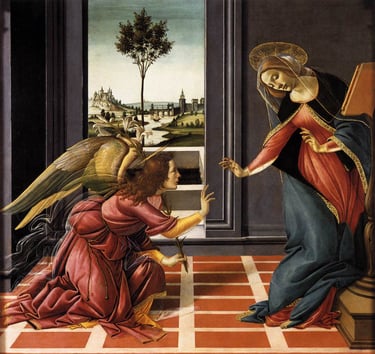





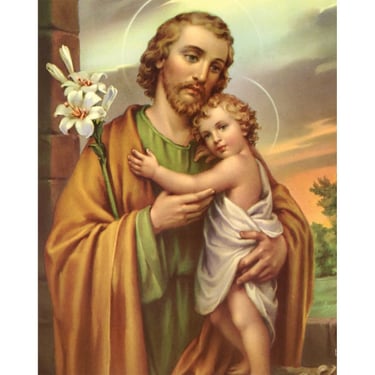



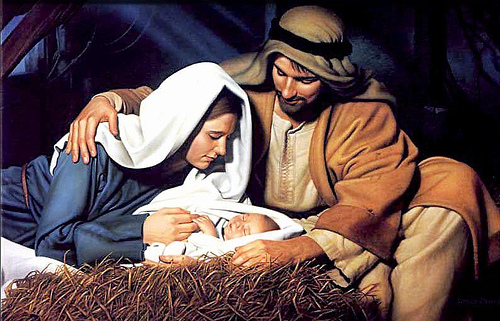

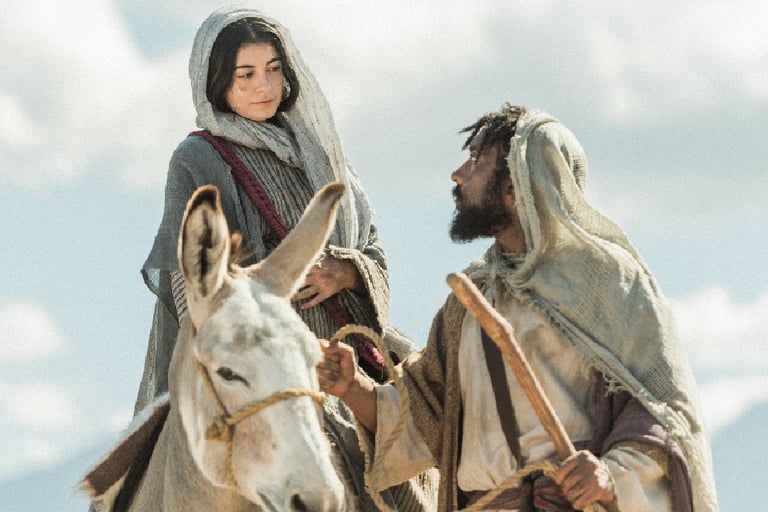

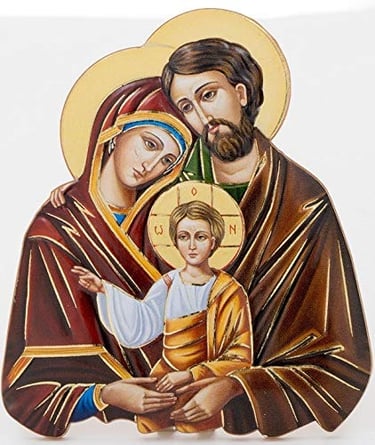

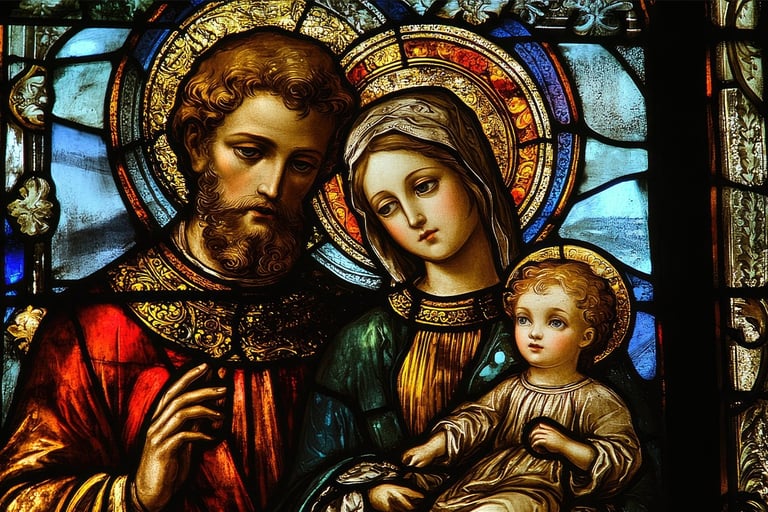

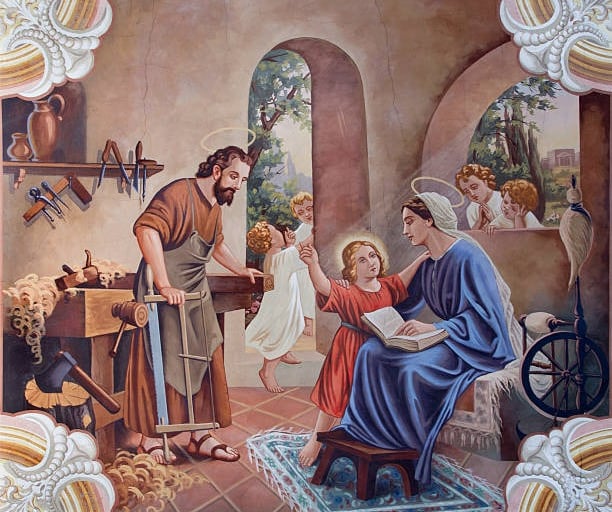

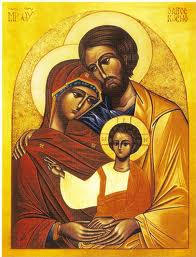

More related Nativity articles;
20 Fascinating Nativity Figures You’ve Likely Never Heard Of
Craft Your Own Traditional Nativity Scene: A Complete Guide
Exploring Global Nativity Traditions: Unique Ways Cultures Celebrate
Mary’s Perspective on the Nativity as the Mother of Jesus
The Christmas Nativity: A Story Told, Retold, and Transformed
